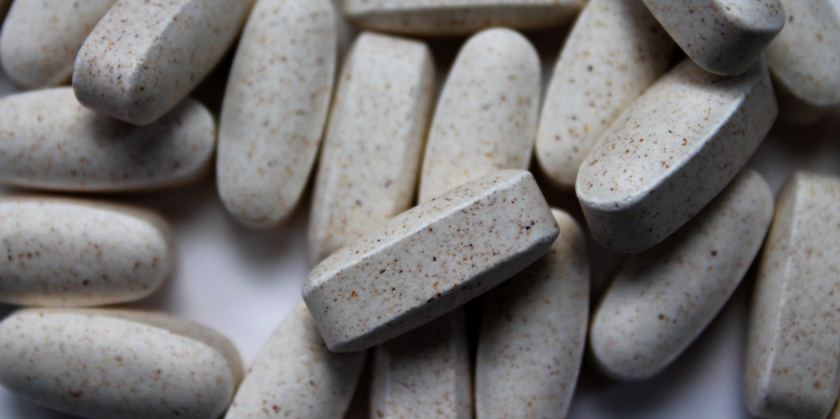Breaking Down Prenatal Vitamins

How to Choose a Prenatal Vitamin
Prenatal vitamins help support your body and may reduce the chances of certain birth defects. Without supplemental support, your body might pull from itself to help build your baby. This may include stealing calcium from your teeth and bones, tissue from muscles, or collagen from your joint cartilage.
There are many types and brands of prenatal vitamins on the market. They are usually found in the vitamin aisle at the pharmacy or grocery store. Health food stores may offer products free from animal ingredients like gelatin and fish. Sometimes, doctors will prescribe or recommend a specialized formula or additional supplements.
Your doctor may discuss your best prenatal supplement early in your pregnancy. This is just one, of many, reasons to seek prenatal care. Some women are advised to start prenatal vitamins before her pregnancy begins. You may be counseled by your OB-GYN to add folic acid into your diet and vitamin program while actively trying to conceive.
The Breakdown
This list may not be all-inclusive, particularly regarding specialized or prescription-only formulas. Some of these nutrients may even be familiar to you– you may have seen them listed on the box of your favorite breakfast cereals. Prenatal vitamins, and supplements in general, are meant to fill in the nutritional gaps that food intake alone may not achieve.
As a bonus, if you are trying to conceive, consider amping up your diet for these nutrients now – long before you begin prenatal vitamin therapy.
Folic Acid/Folate (citrus fruits, leafy greens, beans, lentils, rice, fortified cereal/pasta) Taken prior to conception and through pregnancy, folic acid helps reduce the chance of neural tube birth defects (spinal cord and brain) as well as a condition called spina bifida.
Calcium (broccoli, cabbage, okra, whole sardines, dairy, tofu, soy milk): Strong bones and teeth; a key electrolyte for proper heart and neurological function.
Vitamin D (fatty fish, cheese, egg yolk, beef liver, fortified milk): Supports the absorption of calcium in the body and protects your calcium stores.
Vitamin C/Ascorbic Acid (leafy greens, tomatoes, citrus, peppers, winter squash, broccoli): It’s not just to help you with your cold! Vitamin C is a repair agent. Helps heal wounds; aids in the absorption of iron; helps build and protect collagen, cartilage, teeth, and bones.
Thiamine/B1 (beef, liver, beans, rice): Helps the body metabolize energy; critical for heart, muscle, and nervous system functions.
Riboflavin/B2 (eggs, liver and organ meats, green vegetables): Helps balance energy stores; involved with converting proteins, fats, and carbohydrates into energy.
Niacin/B3 (liver, chicken breast, salmon, anchovy, pork, ground beef): Essential to overall body systems functions.
Vitamin B12 (fish, meat, poultry, dairy, eggs) Essential to the formation of red blood cells; helps make DNA; supports nerve health.
Vitamin E (avocado, nuts, seeds): An antioxidant; protects cells from damaging free-radicals.
Zinc (meat, shellfish, legumes, nuts, seeds, eggs, whole grains): Aids in DNA formation; supports the immune system.
Iron (green vegetables, lentils, beans, nuts, seeds, dried fruit): Essential for blood production; aids red blood cells and muscle tissue; supports hemoglobin which carries oxygen to cells and organs.
Iodine (cod, tuna, shellfish, seaweed/nori, dairy, eggs): Helps the thyroid, hormones, and metabolism processes
While it may seem tempting to just grab a prenatal off the pharmacy shelf, use caution. If you have a health condition, it’s best to be guided in your choice. Certain absorption or blood disorders may require reduced or increased iron or calcium intake. If you are allergic to iodines, seafood, or shellfish, you may need to avoid supplements containing those compounds. Read labels carefully. Your prenatal care team can help you pick the best supplement plan tailored to your body’s unique support needs.
